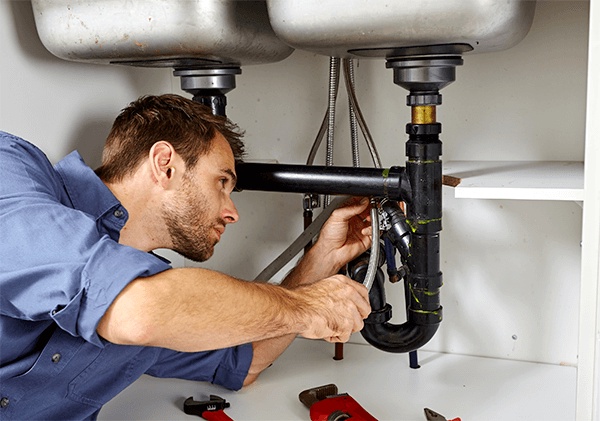As a homeowner in Burwood, it's important to learn some basic DIY plumbing tips and tricks to fix minor plumbing issues that may arise. While some plumbing problems may require the services of a professional Plumber in Burwood, many can be fixed with a few simple tools and techniques. In this blog post, we'll provide some helpful DIY plumbing tips and tricks to help you maintain your plumbing system and prevent further damage.
What are the Tips & Tricks for Burwood Homeowners?
1. Know When to Call a Professional Plumber
While people can easily fix some plumbing issues with basic tools, other problems may require professional plumbing services. Here are some instances when you should call a professional plumber:
- In case you notice water damage or mould growth, call a plumber
- If you smell sewage odours
- If you have low water pressure
- If you face stubborn drain clogging
- If you leak your main water line
2. Use the Right Tools
To fix minor plumbing issues around your home, you'll need to have the right tools on hand. Some of the essential tools you should have in your toolkit include:
- Plunger
- Pipe wrench
- Adjustable wrench
- Teflon tape
- Auger or snake
- Basin wrench
- Hacksaw
- Pliers
- Screwdrivers
3. Fix a Clogged Drain
A clogged drain can be frustrating, but it's a common plumbing issue you can easily fix yourself. Here's how:
- Use a plunger to clear the clog. If that doesn't work, try using a drain auger or snake.
- Clean out the drain trap under the sink.
- Use a homemade drain cleaner with baking soda, vinegar, and hot water.
4. Fix a Leaky Faucet
A leaky faucet can waste a lot of water and money on your utility bill. Here's how you can fix it:
- One needs to turn off the faucet water supply.
- When facing a leaky faucet, removing the handle and loosening the packing nut are crucial.
- Replace the washer or O-ring inside the faucet assembly.
- One must reassemble the faucet and then turn on the water supply.
5. Prevent Future Plumbing Problems
Here are some tips to prevent future plumbing problems:
- Use drain screens to prevent hair and other debris from clogging drains.
- One must avoid pouring grease, fat, or oil down the drain.
- Insulate your pipes to prevent freezing during the winter months.
- Regularly check your toilet for leaks by putting food colouring in the tank and seeing if it appears in the bowl.
- Don't use chemical drain cleaners, as they can damage pipes.
6. Fix a Running Toilet
A running toilet can waste a lot of water and increase your utility bill. Here's how to fix it:
- Check the flapper valve inside the tank, and in case of a worn-out one, you need to replace the same.
- Check the chain that connects the flapper valve to the handle. If it's too long or too short, adjust it accordingly.
- Check the fill valve and adjust it if necessary, and in case of a faulty one, replace the same.
7. Fix a Leaking Pipe
A leaking pipe can cause significant water damage and should be fixed immediately. Here's how:
- One must turn the main water supply off in case of leaking pipes.
- Wrap the leaking area with Teflon tape to create a temporary seal.
- If the leak persists, use a pipe clamp or epoxy putty to create a more permanent fix.
- If the leak is severe or you're uncomfortable fixing it yourself, call a professional Plumber Narre Warren.
8. Maintain Your Water Heater
Your water heater plays an important role in your home, and it's essential to maintain it to ensure it runs efficiently. Here's how:
- Drain the tank annually to remove sediment buildup.
- Check the pressure relief valve to make sure it's functioning properly.
- Insulate the tank to reduce heat loss.
- Check the anode rod and replace it if it's worn out.
9. Check Your Water Meter
Checking your water meter can help detect leaks before they become major problems. Here's how:
- Turn all water sources off before checking the water meter.
- Check your water meter and note down its reading.
- After this, you need to wait a few hours and check the meter again, and in case of a change in reading, you have a leaking faucet.
10. Know When to Replace Your Plumbing
As your home ages, your plumbing system will also wear out. The following are a few signs that it's time to replace your plumbing:
- Frequent clogs in your pipes
- Low water pressure
- Rusty or discoloured water
- Leaks in multiple areas of your plumbing system
- You also need to replace your plumbing if it is more than 50 years old
Conclusion
Knowing some basic DIY plumbing tips and tricks can help you fix minor plumbing issues around your home and save money on professional plumber services. However, it's important to know when to call a professional plumber and to take steps to prevent future plumbing problems. By following these additional DIY plumbing tips and tricks, you can maintain a healthy plumbing system in your home and avoid costly water damage. Remember always to prioritise safety and seek professional help when in doubt.


No comments yet